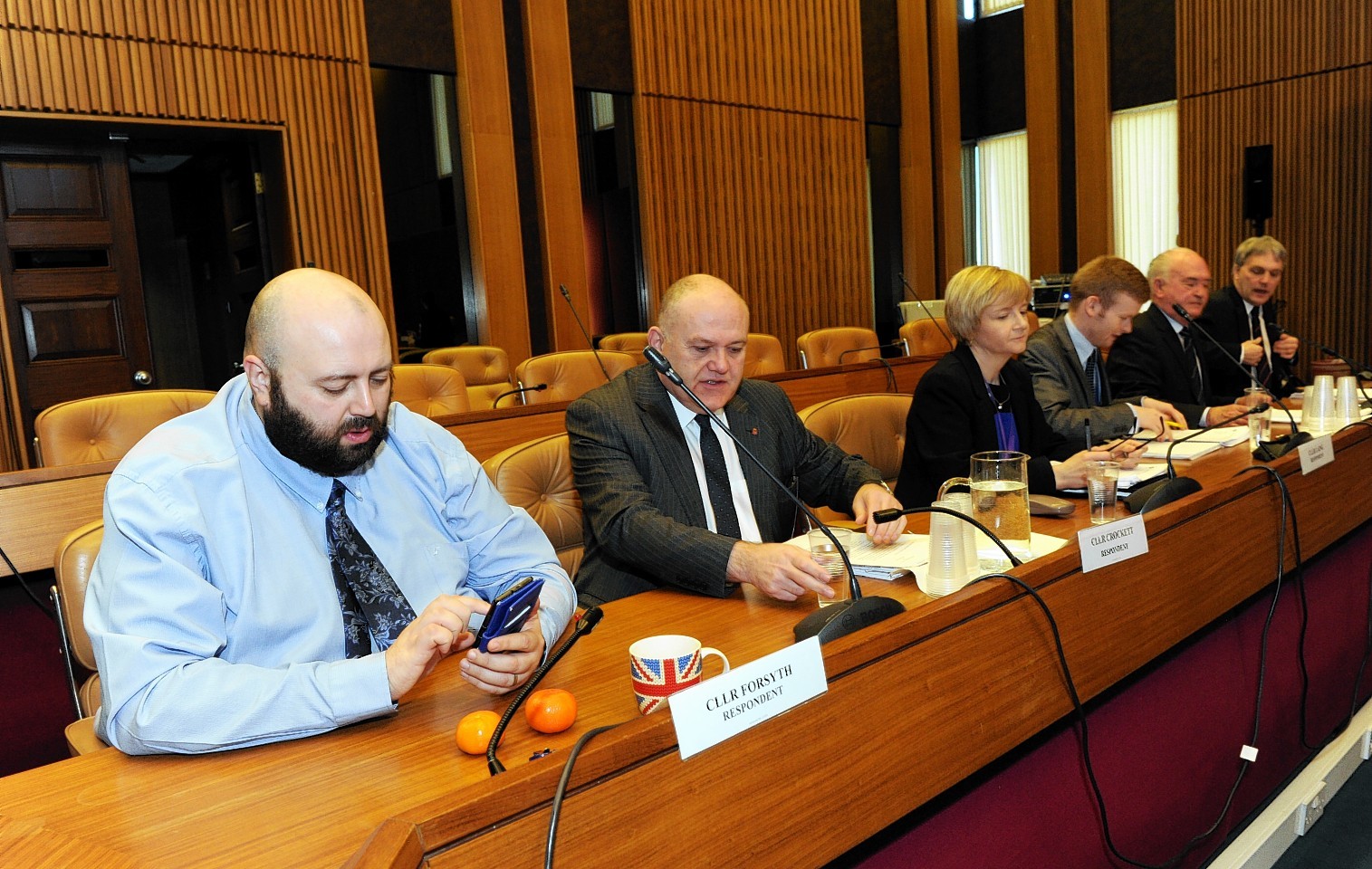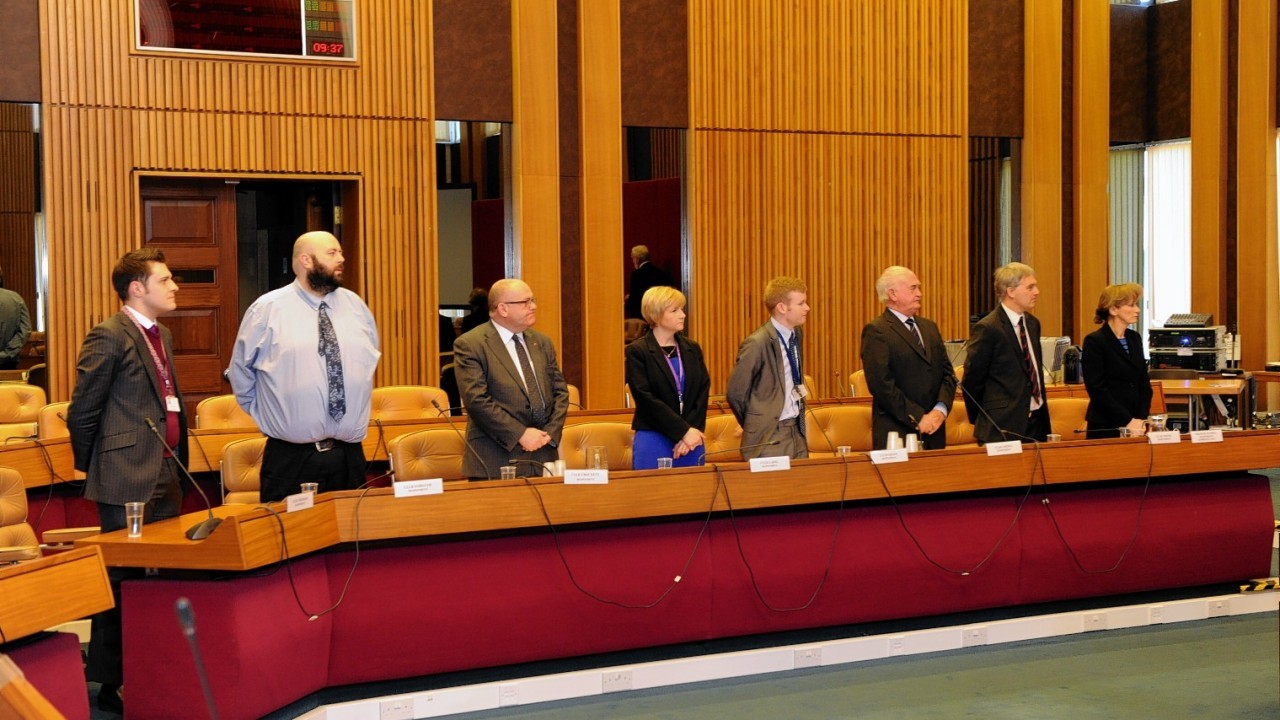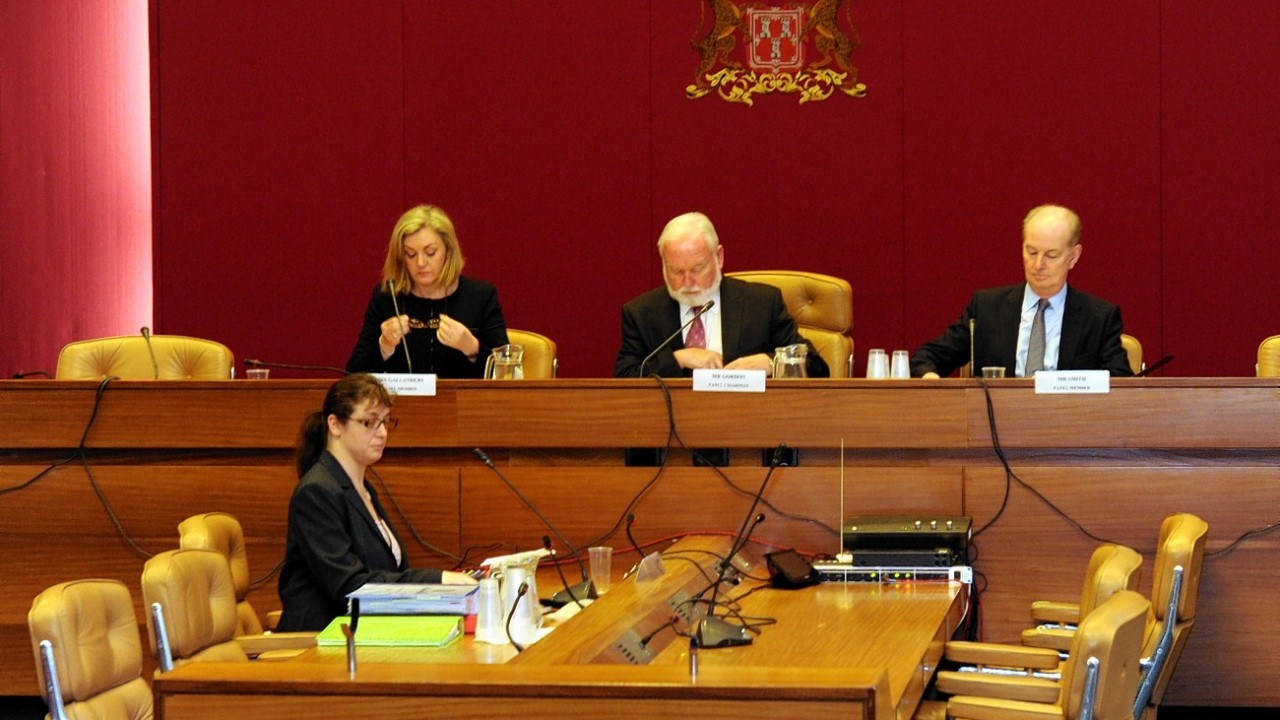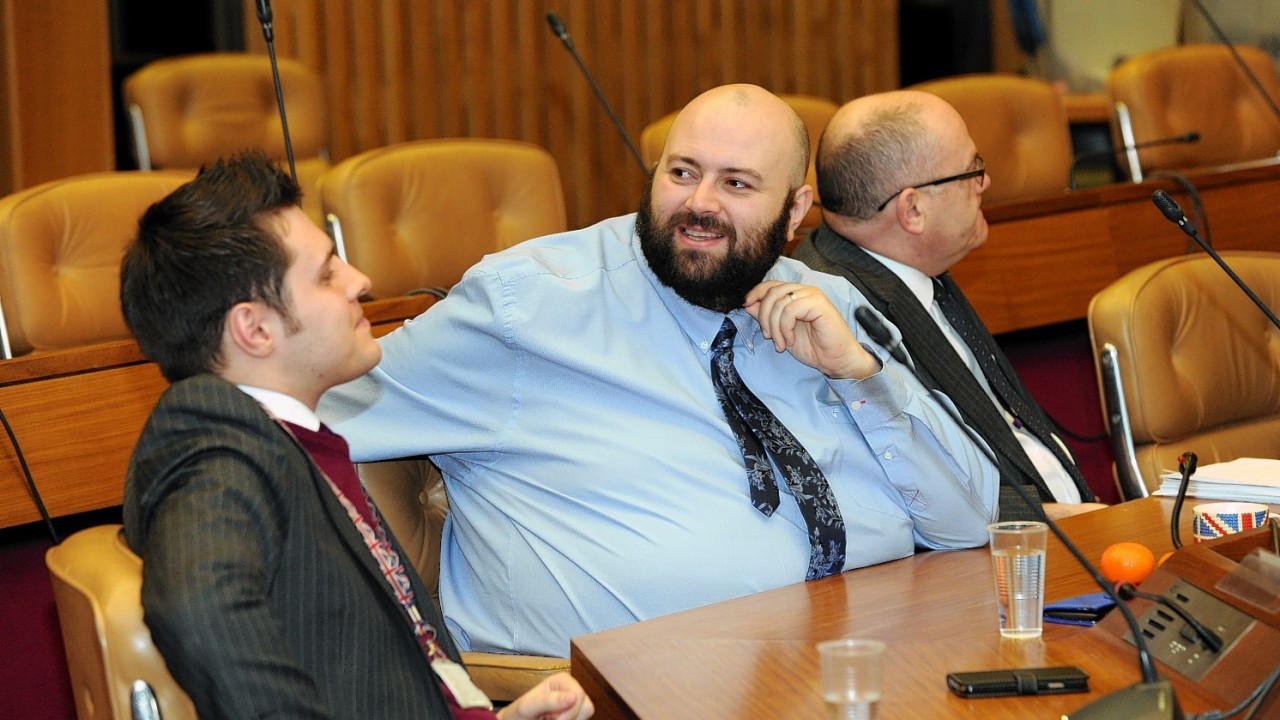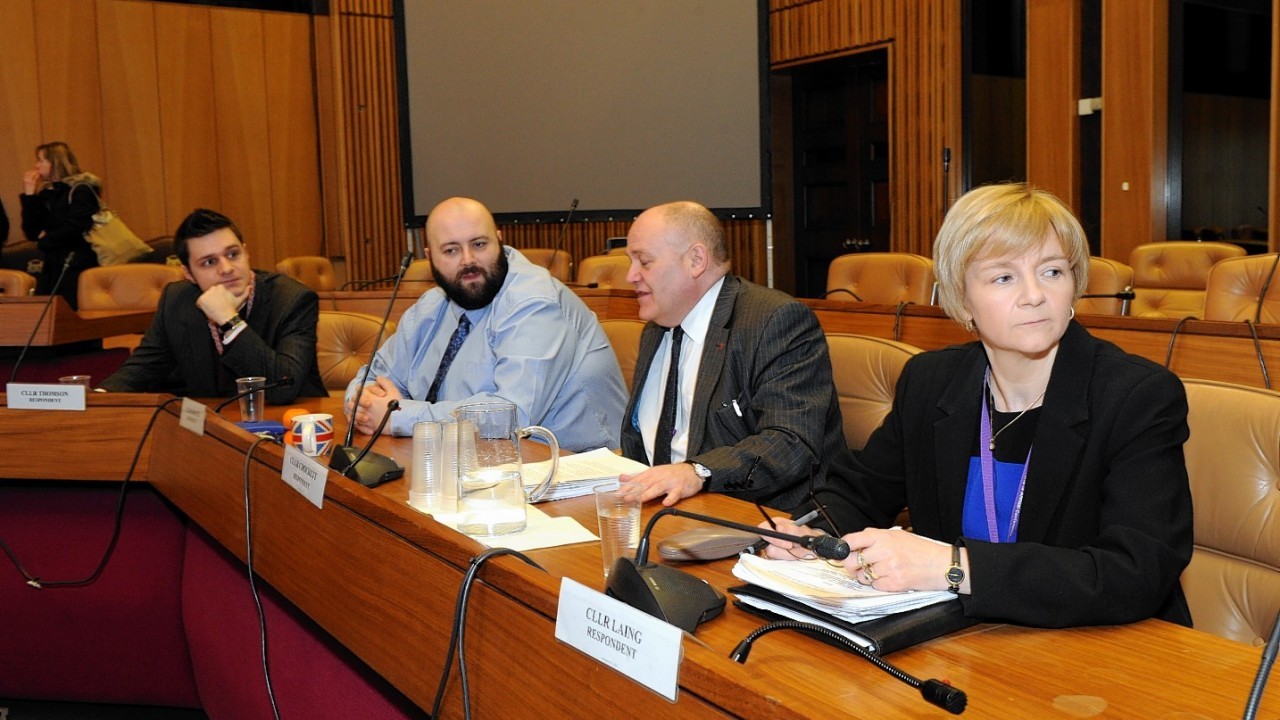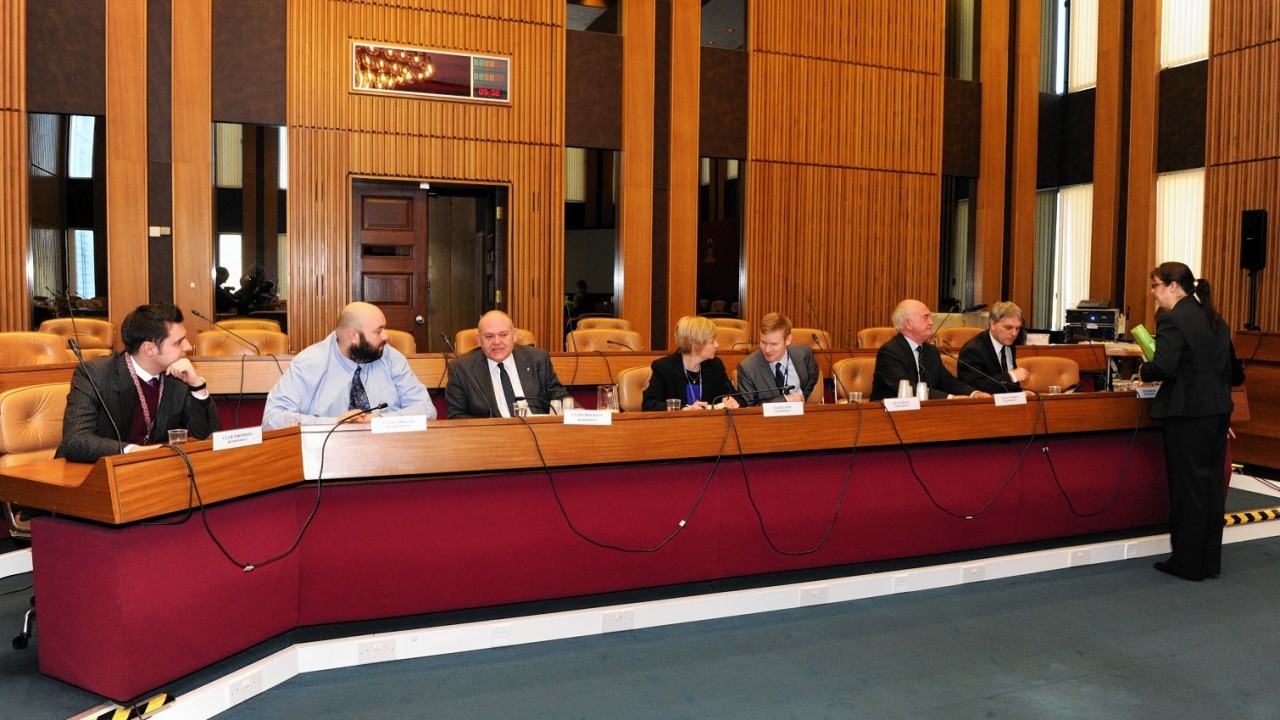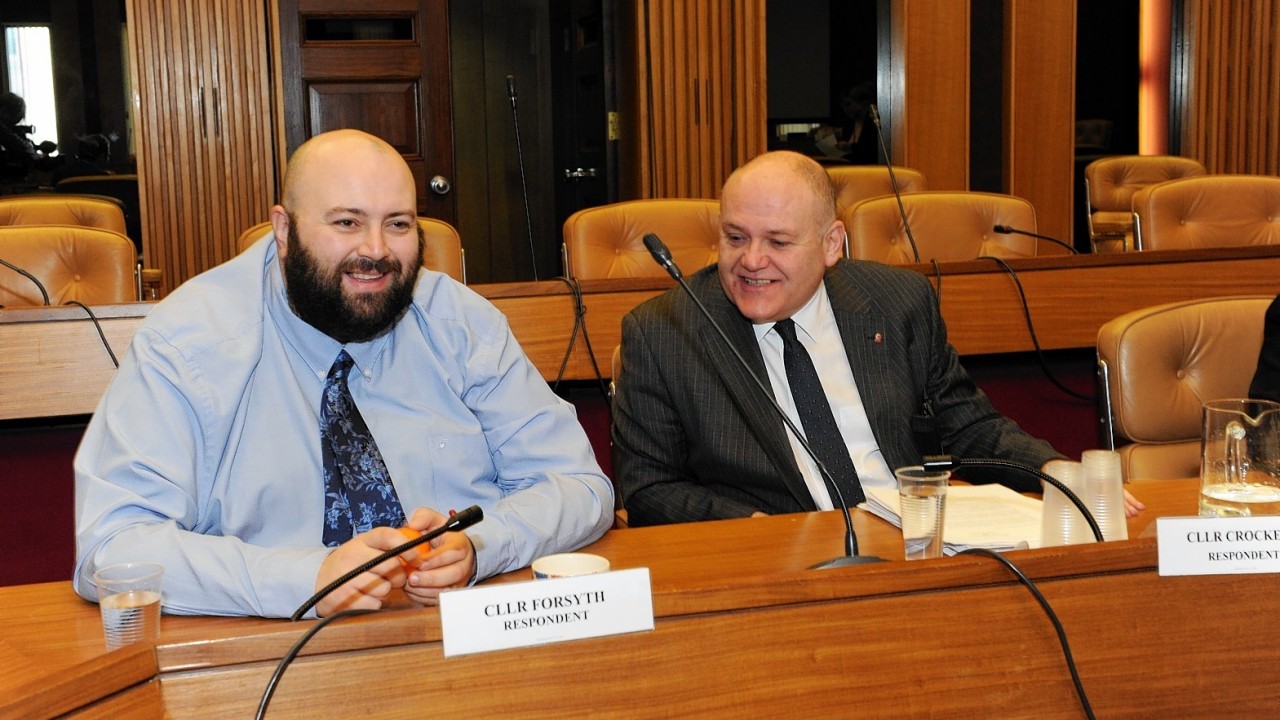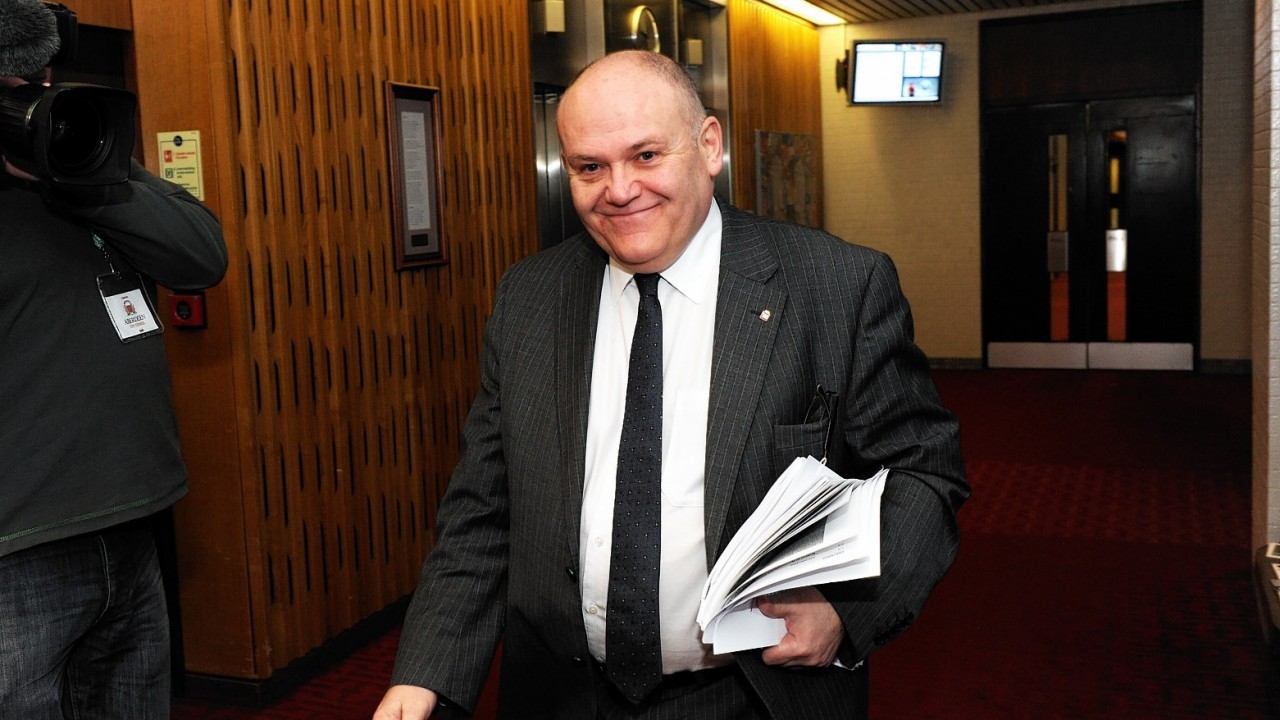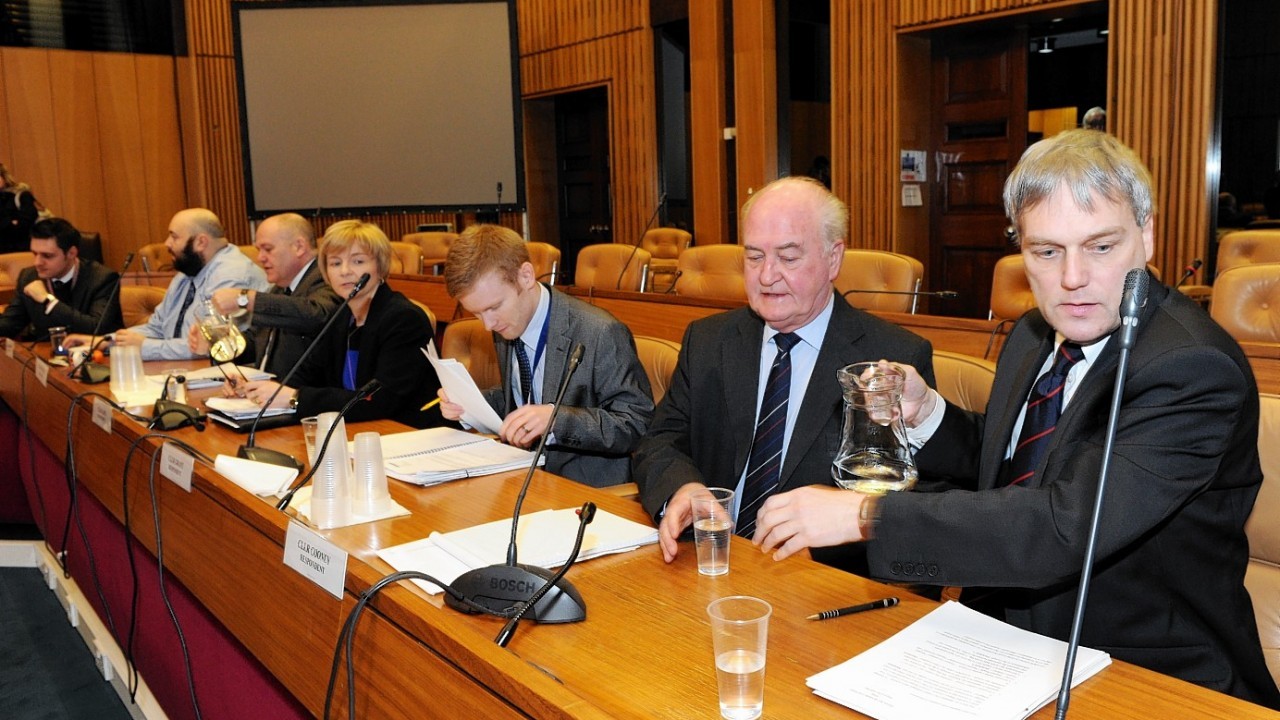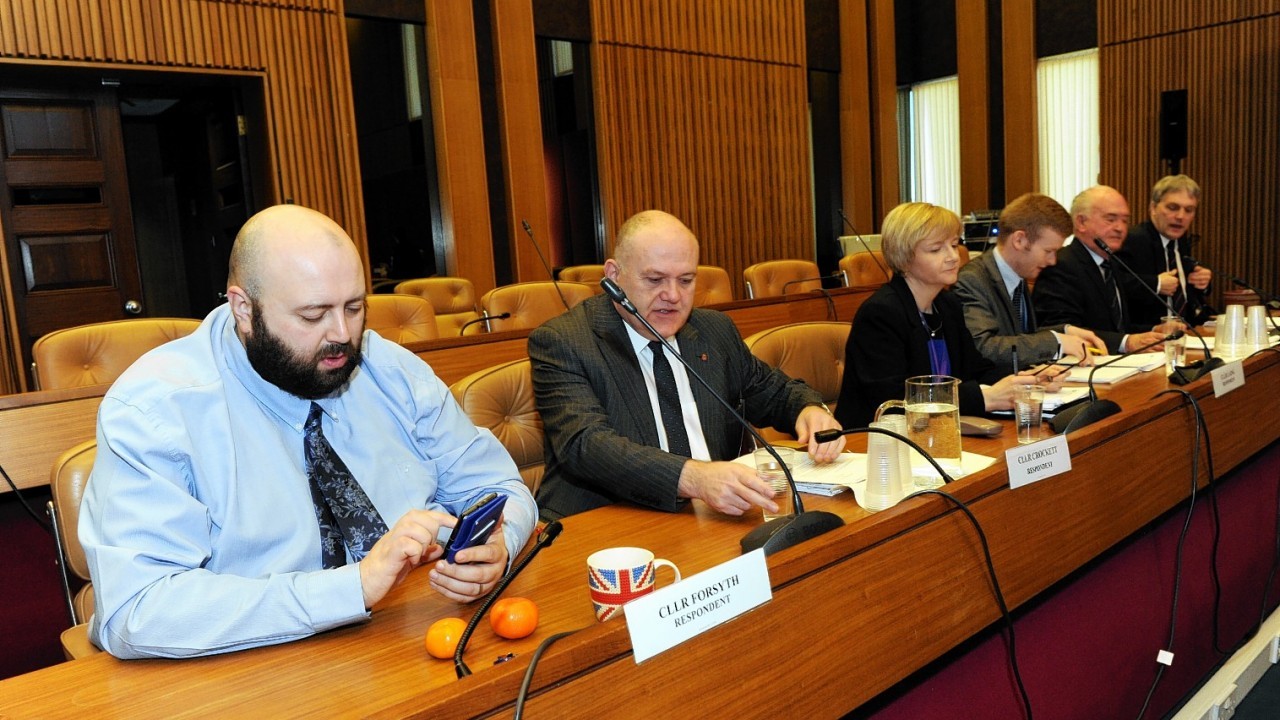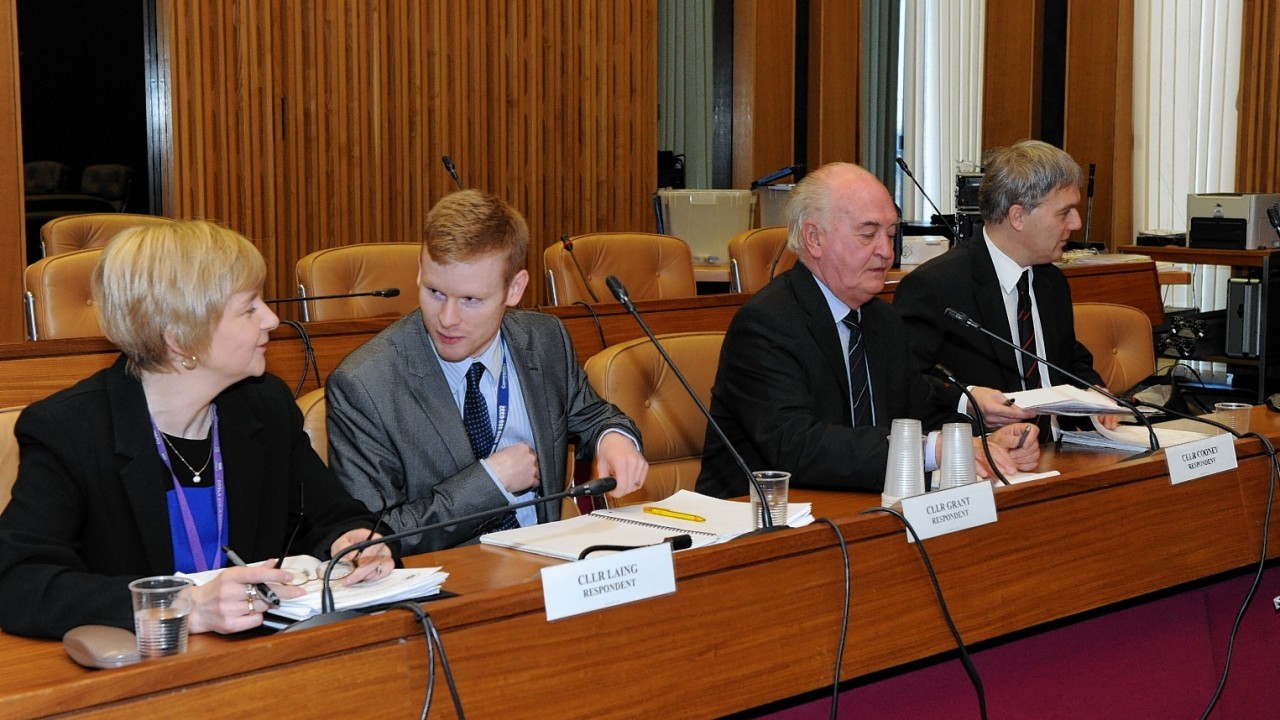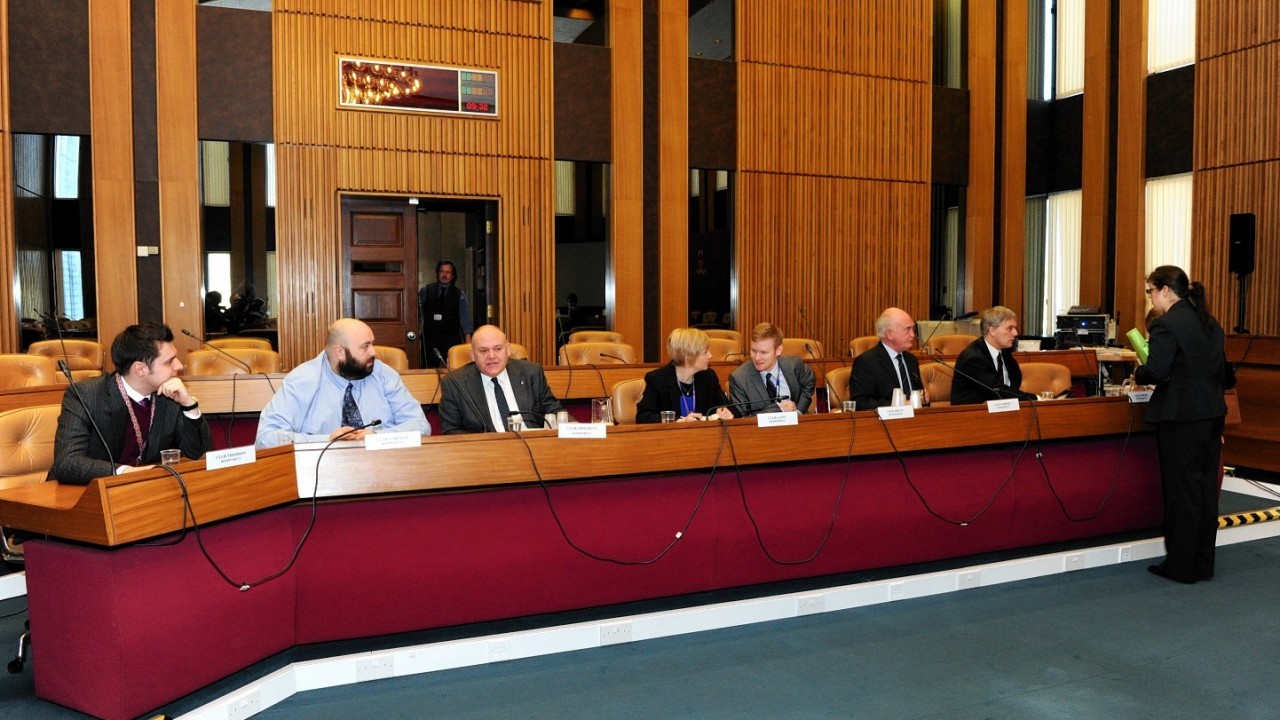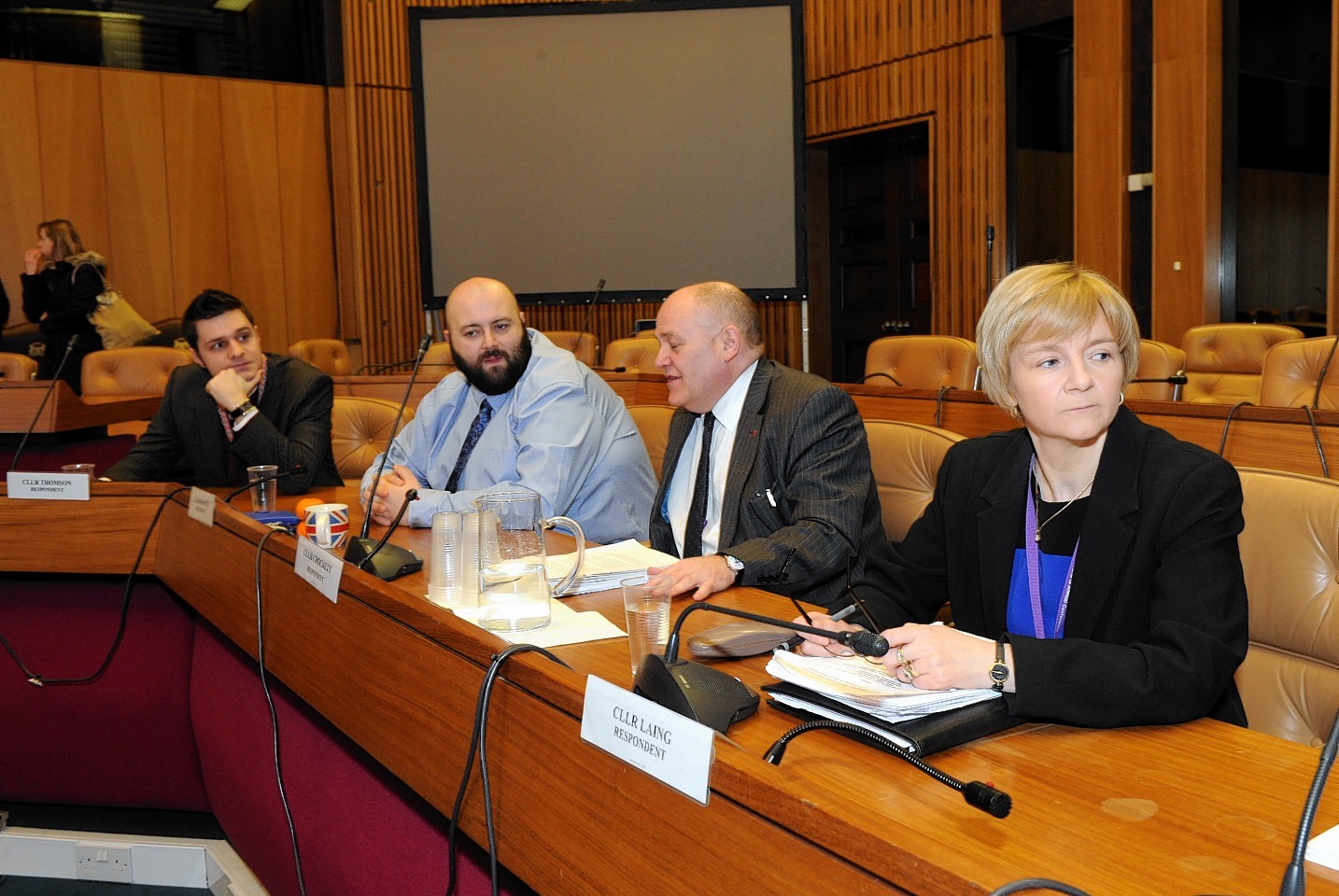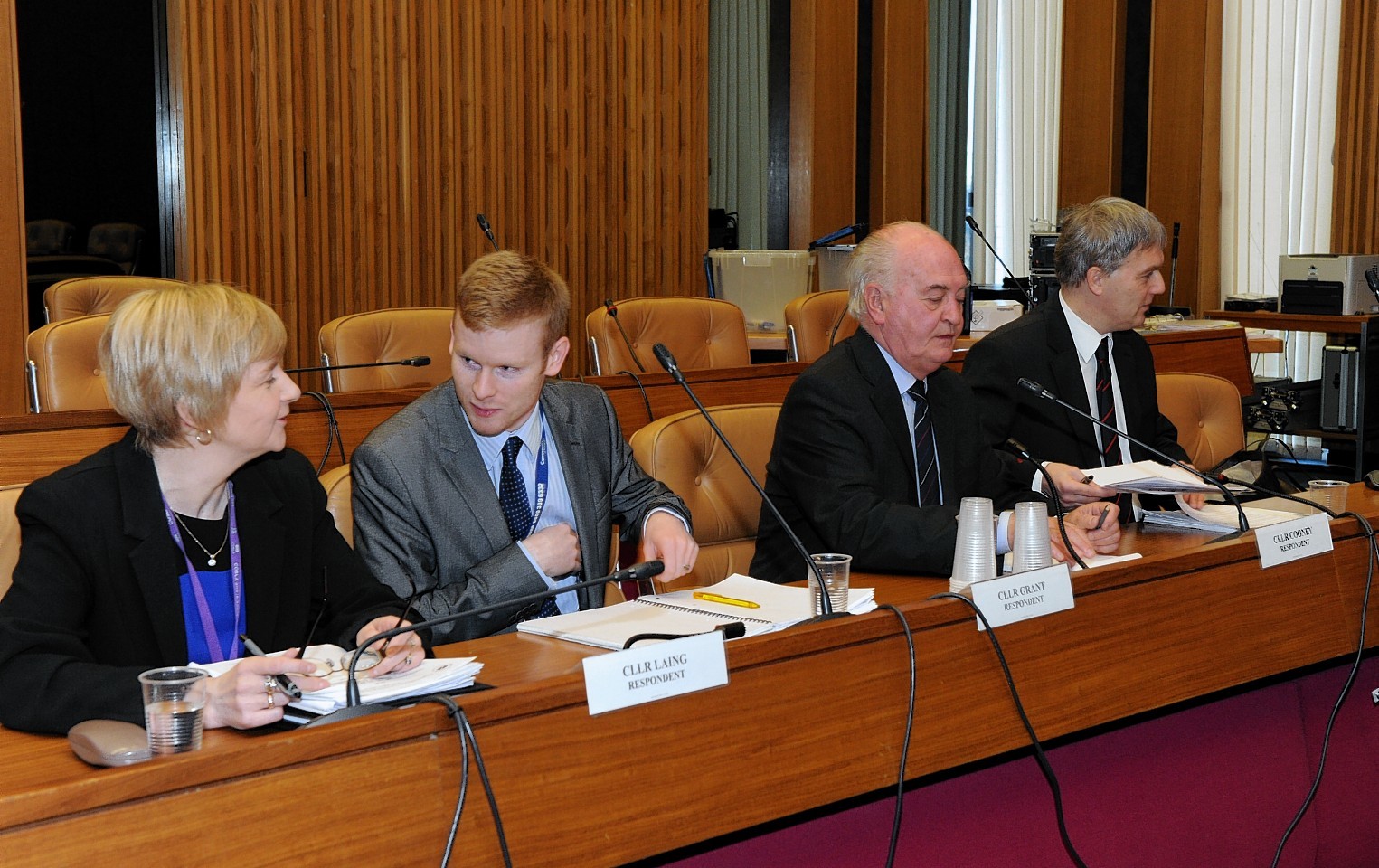The top legal official at Aberdeen City Council warned members they would be breaking the law by sending out pro-Union letters before the independence referendum.
A public hearing yesterday was told seven councillors were advised of the potential risk of going ahead with the correspondence which accompanied council tax bills.
Five Labour, one Conservative and one unaligned member appeared before a Standards Commission for Scotland panel at the town house to answer allegations they breached the Councillors Code of Conduct.
If found guilty, the politicians could face a suspension from meetings for up to a year or disqualification for as long as five years.
The letter, signed by then-leader Barney Crockett, said Aberdeen is “stronger now and will be stronger in the future – economically, politically and socially – as a partner within the United Kingdom”.
The mass mailing, which went out with 110,000 council tax and 6,500 business rate demands in March last year, prompted a string of complaints from members of the public, opposition councillors and local MSPs.
Yesterday, Jane MacEachran, the council’s outgoing head of legal and democratic services and monitoring officer, said that she had raised concerns with Ciaran Monaghan, the chief executive’s head of service, in a telephone call.
She added: “I had concerns about the content of the letter.
“I thought this could cause problems in the future. I believed it could be a breach of the Local Government Act.”
Under further questioning from solicitor Ranald Macpherson of Simpson Marwick, representing the Commissioner for Ethical Standards in Public Life, Mrs MacEachran said she thought there would be “complaints” and potential legal action against the council.
Mr Macpherson asked if any of the councillors asked any questions when presented with written legal advice at a meeting of the urgent business committee on March 11.
Mrs MacEachran replied: “No. I was a bit surprised, given the number of articles that had appeared in the press.
“It was something fairly politically sensitive, I thought I would have been asked to speak to my advice.”
Under cross-examination from solicitor Frances Randle, representing the five Labour councillors, Mrs MacEachran was asked repeatedly why she did not raise her concerns earlier or in writing rather than over the phone.
Mrs Randle also suggested that Mrs MacEachran could have spoken up at the meeting to stop the letters going out.
Mrs MacEachran said: “I believed I was dealing with an intelligent bunch of people who would read the legal advice that had been given.”
Mrs Randle countered: “You had the opportunity to stop these councillors. you could have said something and you chose not to.”
Mrs Randle asked Mrs MacEachran if she “regretted” not speaking up.
She replied that the atmosphere in the committee meetings was “not always pleasant”.
Mrs MacEachran added: “I have said things in committee in the past that have been disregarded.”
Mr Crockett was called before the hearing alongside current leader Jenny Laing, finance convener Willie Young, communities housing and infrastructure convener Neil Cooney and Councillor Ross Grant.
The five Labour members were joined by Conservative Ross Thomson and former Tory councillor Fraser Forsyth, who resigned from the party last year.
The matter was first raised with the Commissioner for Ethical Standards in Public Life in Scotland, who referred it to the Standards Commission.
The alleged breach of section three of the Councillors Code of Conduct was considered serious enough to warrant a hearing, which means the commissioner believes the code of conduct may have been contravened.
All seven councillors were formerly on the urgent business committee, which agreed to the letters being issued.
SNP members of the committee walked out in protest before the decision was taken to proceed with the mailing.
Audit Scotland was previously asked to investigate the matter, but found no rules had been broken.
The watchdog said the council did not incur any additional costs by including the statement in a message about the budget.
